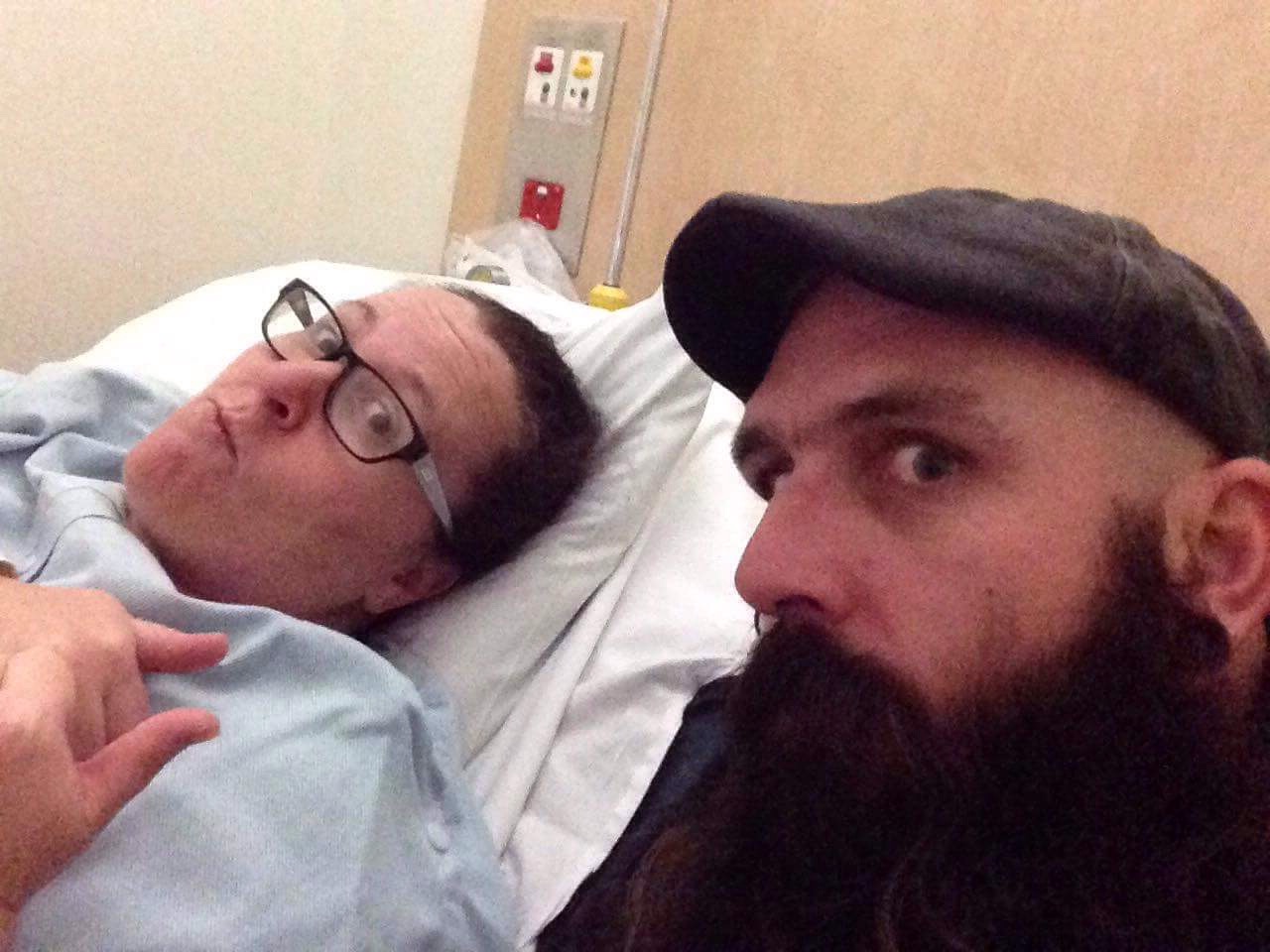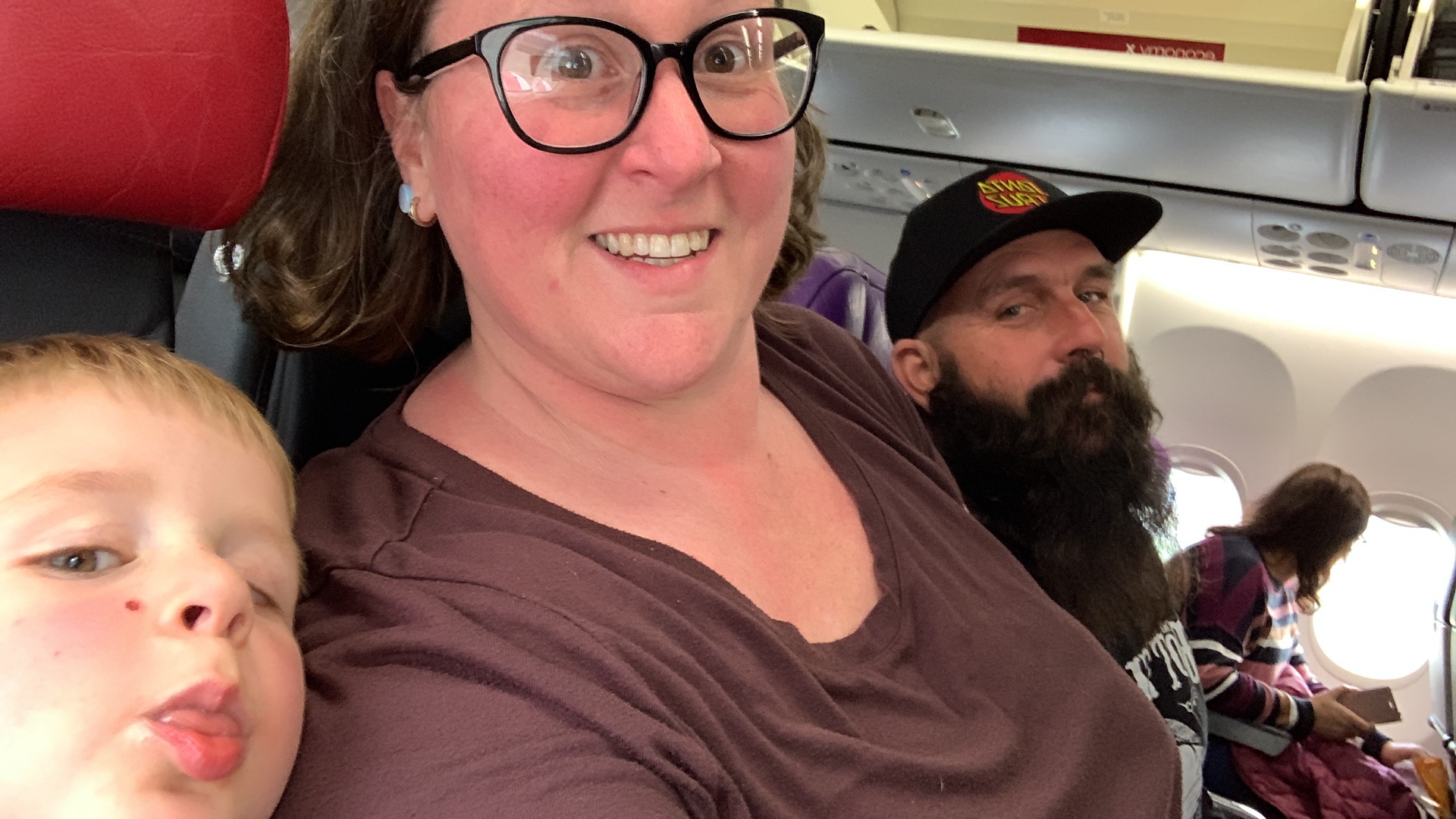Header image: Adobe, Yakobchuk Olena
When Tammy found out that she might need to have a hysterectomy aged 36 she knew her dream of having a family was at risk.
“My partner and I had been together for 16 years. We tried to have children but it never happened for us. Then we’d sold a house and had enough money for IVF but knew it was our last chance,” Tammy said.
“As we were going through the standard checks, I had several polyps removed. One of these had atypical complex hyperplasia cells, which can lead to endometrial cancer.
“Before this I didn’t even know that cancer of the lining of the uterus was possible. I have Polycystic Ovary Syndrome, so I knew I had a higher risk for other cancers but not that.
“The standard treatment would have been a hysterectomy. We had put everything into trying to get pregnant, it would have all been in vain.”

Endometrial or uterine cancer is the most common gynaecological cancer in Australia, with around 1900 new cases being diagnosed every year. The standard treatment for early-stage endometrial cancer is a hysterectomy, removal of the womb, but this isn’t safe for everyone. What’s more, for the small percentage of patients being diagnosed under 40, the idea of losing their fertility can be a serious concern.
Tammy was referred to the Queensland Centre for Gynaecological Cancer Research, where she was offered a place in the feMME trial, a groundbreaking study into whether endometrial cancer could be treated less invasively using an IUD.
Dr Eva Baxter, of the UQ Centre for Clinical Research explained how the team hoped the trial would lead to kinder treatment options for patients, without the need for surgery. “Often when we speak about cancer treatment we only speak about survival,” she said.
“But, for many people like Tammy, the main concern is not whether they will survive but the quality of the life they will have.”
“In the feMME trial, we challenged the concept of radical surgery for patients who could possibly be spared. This meant that younger patients with early-stage cancer could retain their fertility, and potentially go on to complete their families.”

Tammy’s treatment was successful, as was her IVF, and she now has a son Jasper who has just turned four. But she knows that her story is still unusual. “I’ve now met women who never had that choice and had to have hysterectomies in their 30s,” she said.
“It’s very sad and I’m so relieved that we had a choice. I hope the trial I was part of leads to further study, which could help other people in my position.”
Creating kinder, less invasive treatments for gynaecological cancers is only made possible through your donations.
You can make your donation go even further with our Giving Day partner, Cherish Women's Gynaecological Cancer Foundation. Cherish have agreed to match all donations between October 4 and 18, up to the total value of $10,000. Help us meet this target and donate now to support better and kinder treatments for gynaecological cancers.
Help us to improve people’s quality of life after gynaecological cancer
